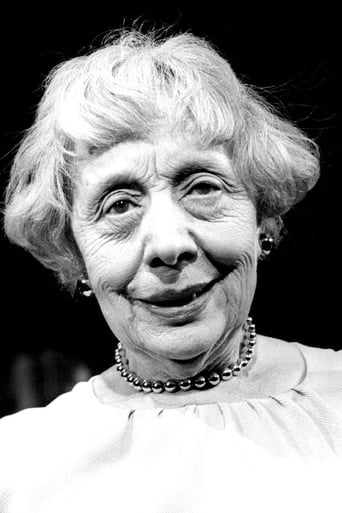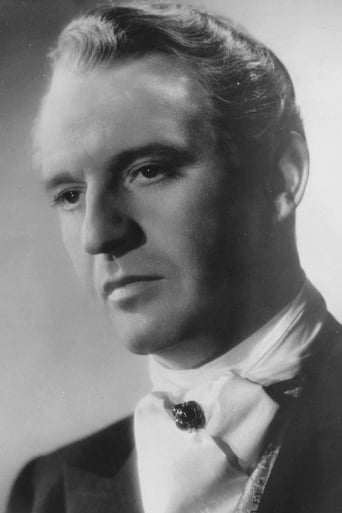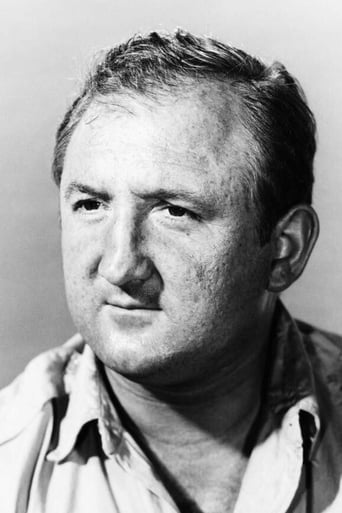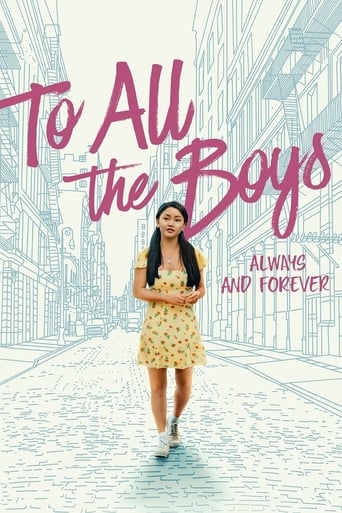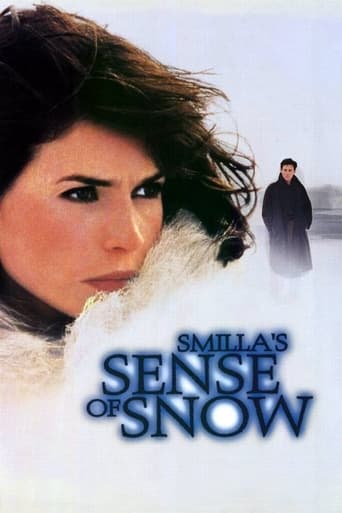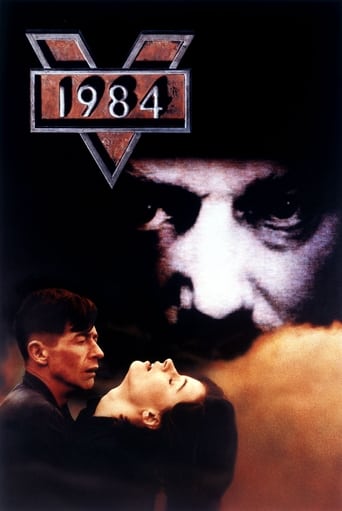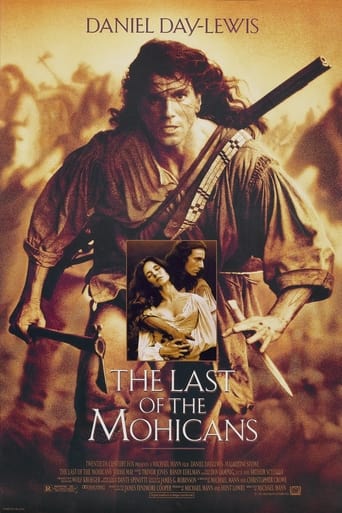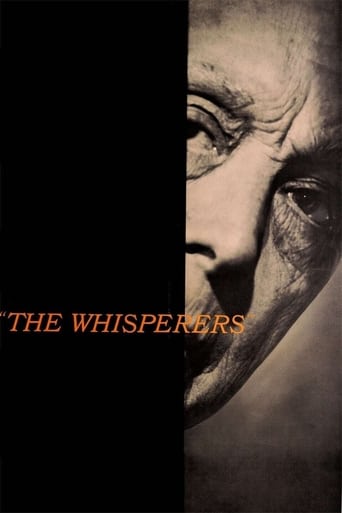
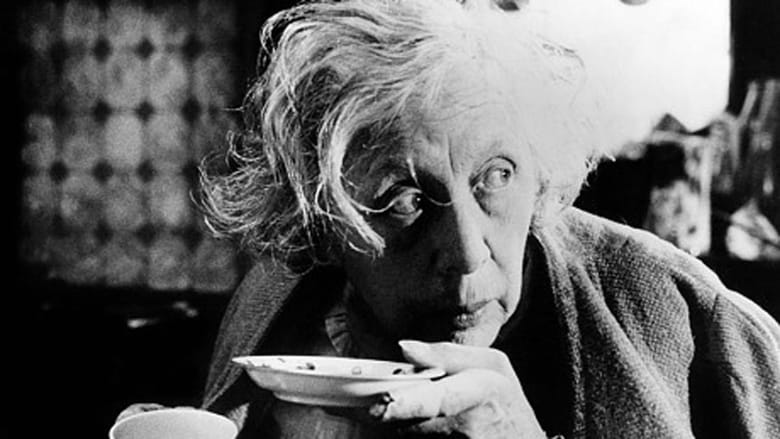
The Whisperers (1967)
Margaret Ross is an impoverished old woman who lives alone in a seedy apartment and enjoys a rich fantasy life as an heiress. One day she discovers stolen money hidden by her son and believes her fantasy has come true.
Watch Trailer
Cast


Similar titles
Reviews
Another middle of the road film: not good, not bad. It's just more or less the viewing or peering into a few days of a life of a sad, half crazy little old lady. She sees things and likes to fantasize about being rich. And yes she discovers lots of money her son stole, now believing her fantasy's will come true.It does have some great scenes of her and sometimes really good cinematography but that's really about it. It's a story with no real focus, no real direction - it just is. Seems to be a bit of an artsy piece and that's about it.Minus all the money she find, I think this is me in a few more years... a sad, lonely, half-crazy, poor little old lady living alone. Maybe that is the point of the film - don't end up this way, instead find lots of money to be happy at least(?)! lol.5/10
Just watched this for the first time. The description didn't do the movie justice. It advertised as a thriller, and yes, I thought it was going to take that turn more than a few times. First time was when Maggie's thug of a son showed up. The second was right after she was "befriended" at the welfare by the woman sitting next to her. The third and final time was when her waste of a husband Archie got his feet back in her door. I didn't get Margaret or her story until the end of the movie. The finale explained the beginning. We see her back at the dole office in need of money. We see her back at the free reading room warming her foot on the heater pipe. We see her back at the church service singing hymns. The last scene finds her making her tea and reading her paper. When did she start to collect papers and reading materials to "study?" Was it during her marriage or after? Remember how Archie got so upset when he came home after a day of "looking for a job" (placing bets at the sporting office) and there was no paper from the morning for him to "study?" She returned from hospital to find her flat spic-n-span and then Archie comes home; a new start? I think she felt it was. Notice how she kept up the house; found order. It wasn't about happiness or love or even companionship. He hurt her and that wasn't forgotten, but it could be lived with. It was about his physical presence. This was about some lifting of the loneliness, and the lesser need for fantasy. The idea that there would be someone within the walls filled the space the voices used to take up. I wish my thoughts were more clear and I was better at explaining, but I really want to see this movie again, or should I say, I want to watch the character of Margeret again. This is a character that's going to be hard to forget.
What a treat that this amazing classic has been released on DVD at last. It came out in 2010 as one of the initial trial batch of unjustly ignored old MGM-owned titles (it was a Lopert Production) which have been released as MGM Limited Edition titles by the CreateSpace division of American Amazon (not yet available in Britain despite being a British film). (The other most important title issued at the same time is Sidney Lumet's THE GROUP.) Every serious student of acting should order this film immediately in order to study the mind-blowing performance of Dame Edith Evans as the lead character, Margaret Ross, aged 76. Edith Evans herself was the antithesis of this character, but she throws her own personality overboard and drowns it dead as a dodo, to transform herself as if by magic into this person. Rarely has a screen impersonation been so complete that one feels it goes down not just to the bone but to the marrow. To say that Edith Evans (1888-1976) could act the socks off all comers is an understatement, one only has to admit simply that when it comes to mastery of her profession, no one can touch her. She was a genius. It is astonishing that she did not receive an Oscar for this film, although she was nominated for one but she did receive the 1968 BAFTA award for it, as well as the Golden Globe in America, the New York Film Critics Circle Award (an award which was at its most prestigious in the 1960s), and the Berlin Silver Bear Best Actress award. So at least she did not go unappreciated at the time, though the film has tended to be forgotten since. The film was written and directed by Bryan Forbes, and inevitably has his wife Nanette Newman in it in a small part. Forbes is not normally noted as one of the giants of the cinema, but in this instance he really delivered. Only three years earlier he had drearily depressed everyone with a very boring film, SÉANCE ON A WET AFTERNOON (1964), which was also shot by Gerry Turpin, who was the cinematographer on this. Turpin's black and white lighting camera work is so spectacular in this film that it also should have won an Oscar. It is absolutely inspired. Various old timers deliver fine supporting performances in the film, chiefly Eric Portman as Evans's callous drunken husband whom she has not seen for twenty years, but also Gerald Sim as a welfare officer and Ronnie Fraser as Evans's ne'er-do-well son, and there is a hair-raising performance as a wicked scheming woman by Avis Bunnage. The story and main character are pathetic in the extreme. The film is largely a poignant study of the extreme loneliness, isolation, and cruel victimisation of the elderly. Goodness knows where Forbes got this idea from, but it seems deeply personal somehow. Did he have a great-aunt like this, one wonders. The film is far from cheerful. It is bleak and disturbing, and tells the kind of story which is often called 'deeply human'. It is sad and also frankly heart-breaking because of the pathos aroused by Evans's portrayal of the woman. The film is set up north somewhere, but evidently not very far north, for Manchester is mentioned in the credits. It seems that the vast stretches of desolation, the hundreds of acres of demolished terrace houses, and the eerie emptiness of the strange place where Evans lives in a flat on the ground floor of a crumbling house must have been Manchester as it was being demolished in 1966 to make way for the new high-rise buildings. What was once a depressing two-dimensional world was transformed into an even more depressing three-dimensional world in the sky, but we do not see the future results of all the devastation in this film, we merely see the flattened beginnings of it. It looks as if the whole city has been bombed by the Nazis, but in this case the Nazis appear to have had large relentless treads and gone under the name of bulldozers. I suppose the desolation of the setting was meant to evoke the desolation of Evan's loneliness. So there is plenty to be depressed about, if you are that way inclined. The story is a simple one in its way. Evans is an abandoned old lady who hears voices ('the whisperers') and talks to invisible presences. But at other times, she has her dignity and speaks in what is known in England as 'a good voice', which ruffles the feathers of all the lower orders no end. It seems that she was the daughter of a bishop who married a chauffeur and came down in the world. As she puts it in a voice over, 'I married beneath me'. We see some flashbacks of her as a child on the stairs watching the grownups at a grand party in the bishop's palace. Her pretensions of being a bishop's daughter are derided by a civil servant, who claims she was just a cleaning woman in a bishop's palace once. But in that case, how did she come by her infallibly upper class manners and accent, which are not an affectation? What is so astonishing about Evans is the way she throws herself into every word and every mood as if she were a World Champion diver, never missing a twirl of her personality as she plunges into the abyss of otherness. This really is something, it really really is. (Did I say too many really's?) It's the real thing all right.
This may be the bleakest of all the 'kitchen sink' movies, (it is unremittingly gloomy) and Bryan Forbes' picture of the British Welfare State in the 1960's has an almost Dickensian feel to it. But then Forbes always seemed to work better with subjects which didn't lend themselves to levity.It's the story of Mrs Ross, a pensioner living on her own and beset by the voices one hears when one is so lonely and in the part Edith Evans is quite magnificent. If you think Evans too patrician for the part of an old woman living in a working class district of an industrial, mostly derelict and rain-sodden city, she does point out that 'she married beneath her' and since she is hardly ever off the screen this is a real tour-de-force, (and she was nominated for the Oscar for it as well as winning a whole slew of other awards). There are also first-rate supporting performances from the wonderful Avis Bunnage and the always consistently reliable Gerald Sim and Eric Portman, terrific as her errand husband). Unfortunately the film's sub-plots involving stolen money and some gangsters seems superfluous and gives the film a somewhat melodramatic air and its down-beat mood meant it was never a popular success and it is hardly ever revived. But seek it out, all the same; it is certainly worth seeing.


